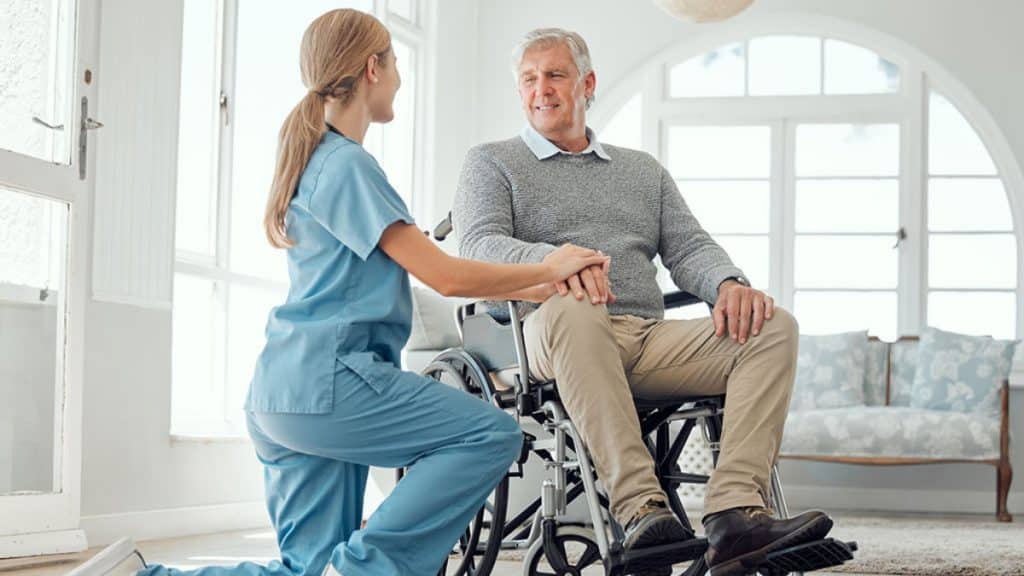Caring for a loved one with Alzheimer’s disease can be both rewarding and challenging. As the disease progresses, caregivers often find themselves needing specialized knowledge and skills to provide the best possible care. Alzheimer’s training for caregivers is designed to equip them with the tools and understanding required to manage the unique needs of individuals with this condition. Let’s explore the benefits of such training and why it is essential for anyone involved in Alzheimer’s care.
Improved Understanding of the Disease
One of the primary benefits of Alzheimer’s training is gaining a deeper understanding of the disease itself. Caregivers learn about:
- The stages of Alzheimer’s disease and what to expect at each stage.
- The common symptoms and how they manifest over time.
- The biological and psychological aspects of Alzheimer’s.
Enhanced Communication Skills
Effective communication becomes increasingly important as Alzheimer’s progresses. Training programs often emphasize:
- Techniques to improve verbal and non-verbal communication.
- Strategies to reduce frustration and confusion during interactions.
- Methods to encourage positive interactions and engagement.
Behavioral Management
Caregivers often face challenging behaviors such as aggression, wandering, and agitation. Training helps them:
- Identify triggers and early warning signs of problematic behaviors.
- Implement de-escalation techniques and calming strategies.
- Develop personalized care plans to address specific behavioral issues.
Better Physical Care Techniques
Proper physical care is crucial for the well-being of individuals with Alzheimer’s. Caregivers are trained to:
- Safely assist with daily activities like bathing, dressing, and eating.
- Monitor health conditions and manage medications effectively.
- Understand and implement proper nutrition and exercise routines.
Emotional Support and Stress Management
Caring for someone with Alzheimer’s can be emotionally taxing. Training programs provide:
- Coping strategies for dealing with caregiver stress and burnout.
- Support resources and networks for emotional and psychological assistance.
- Techniques to maintain personal well-being while caregiving.
Improved Safety and Risk Management
Safety is a paramount concern for Alzheimer’s caregivers, given the increased risks associated with the disease. Training programs cover a wide range of safety and risk management strategies to ensure the well-being of both the caregiver and the person with Alzheimer’s. Here’s a detailed look at what caregivers can expect to learn:
Creating a Safe Home Environment
- Fall Prevention: Alzheimer’s patients are prone to falls due to impaired balance and coordination. Caregivers are taught how to remove tripping hazards, install grab bars in bathrooms, and ensure proper lighting throughout the home.
- Safe Cooking Practices: Kitchen safety is crucial, as individuals with Alzheimer’s may forget to turn off appliances. Training includes using automatic shut-off devices and simplifying meal preparation to minimize risks.
- Securing Hazardous Items: Caregivers learn to secure medications, cleaning supplies, and other potentially dangerous items to prevent accidental ingestion or misuse.
Recognizing and Mitigating Wandering Risks
Wandering is a common and dangerous behavior in individuals with Alzheimer’s. Training programs offer strategies to manage this risk effectively:
- Identification and Tracking: Caregivers are encouraged to ensure that the individual always carries identification and consider using GPS tracking devices.
- Safe Outdoor Spaces: Creating secure, enclosed outdoor areas allows for safe movement without the risk of wandering off.
- Alert Systems: Installing door alarms or monitoring systems can alert caregivers when the person attempts to leave the house unsupervised.
Emergency Preparedness and Response Plans
Caregivers are trained to handle emergencies effectively, which is vital for the safety of the person with Alzheimer’s:
- First Aid Training: Basic first aid skills are essential, including how to respond to choking, falls, or minor injuries.
- Emergency Contacts: Keeping a list of emergency contacts, including doctors and local hospitals, ensures quick access to help when needed.
- Evacuation Plans: Caregivers learn how to create and practice evacuation plans for various emergencies, such as fires or natural disasters, ensuring the individual with Alzheimer’s can be safely and quickly evacuated.
Statistic Insight
According to the Alzheimer’s Association, over 16 million Americans provide unpaid care for people with Alzheimer’s or other dementias. This care is valued at over $271 billion annually, highlighting the immense contribution and impact of caregivers. Additionally, nearly 60% of Alzheimer’s caregivers rate their emotional stress as high or very high, underscoring the importance of comprehensive training programs to support them.
Investing in this type of training for caregivers is essential for anyone looking to provide the best possible care for a loved one with this condition. Such training not only improves the quality of care but also enhances the caregiver’s ability to manage the physical and emotional demands of their role.
Here are some key takeaways:
- Holistic Understanding: Caregivers gain a comprehensive understanding of Alzheimer’s disease, enabling them to anticipate and manage its progression effectively.
- Enhanced Communication: Improved communication techniques help foster better relationships and reduce frustration for both caregivers and patients.
- Behavioral Management: Learning to handle challenging behaviors with patience and skill enhances the caregiving experience and promotes a more positive environment.
- Physical Care: Proper training in physical care techniques ensures that daily activities are performed safely and efficiently.
- Emotional Support: Strategies for managing stress and accessing emotional support resources are crucial for caregiver well-being.
- Safety First: Creating a safe living environment and being prepared for emergencies are critical components of effective caregiving.
By equipping caregivers with the necessary skills and knowledge, we can ensure a better quality of life for both the caregiver and the individual with Alzheimer’s. If you or someone you know is providing care for a person with Alzheimer’s, consider exploring training programs to gain these invaluable benefits. Investing in Alzheimer’s training for professionals is not just about improving care—it’s about creating a supportive, understanding, and safe environment for everyone involved.
